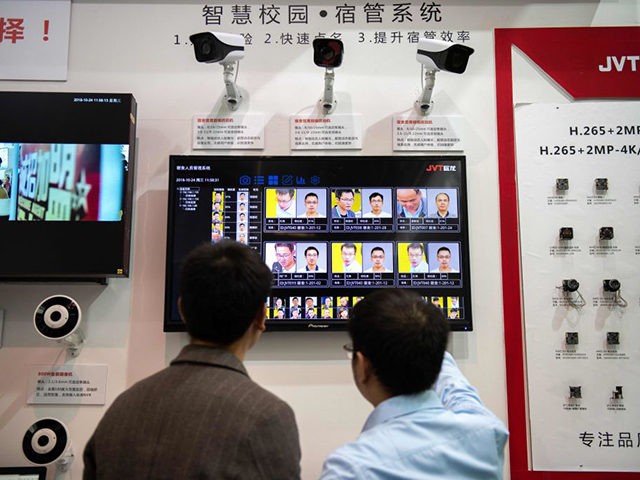China’s use of facial recognition technology is an effort to protect people’s human rights, the country’s state media declared on Tuesday.
In a typically brazen editorial by Global Times, the English language state propaganda outlet boasts that despite having developed the fastest and most effective facial recognition technology in the world, Western media outlets have been using the “cliché of human rights to attack China” over concerns of privacy.
“They have not realized that the convenience and security brought by the new technology are also a guarantee of human rights,” the editorial reads.
The core of the editorial’s argument goes to the heart of the Chinese communist worldview, the outlet argued, that security triumphs liberty as the most important human right of them all.
“What is the most important human right? It might be security. Facial recognition and the real-name system are currently the most effective ways to crack down on telecommunications fraud and identity theft,” it continues. “These measures have successfully protected the personal and property security of Chinese mobile phone users.”
The writers use the example of Xinjiang, where facial recognition technology is being used to help carry out the mass repression of its Uyghur Muslim population, as an effective way to “detect terrorists and protect ordinary people,” adding that it has played an important role in countering terrorism and bringing peace back to Xinjiang.
China is currently in the process of aggressively implementing such technology, with new legislation coming into effect this weekend requiring telecom operators to collect face scans of their new customers. Authorities have already successfully rolled out other facial recognition systems in a number of other sectors, including at supermarket checkouts, transport systems, and public walkways.
Jeffrey Ding, a researcher on Chinese artificial intelligence at Oxford University, told the BBC that although the technology can be utilized to bolster cyber-security and reduce Internet fraud, the principal intention is to monitor the population.
“It’s connected to a very centralized push to try to keep tabs on everyone, or that’s at least the ambition,” he explained, in reference to China’s ambition of becoming the world’s most effective surveillance state.
In the editorial, Global Times also points out that similar systems are being trialed in France and the United Kingdom, adding that the worldwide roll-out of such technology is now “unstoppable” anyway.
“The development of new technology is unstoppable. Instead of accusing China of putting so-called electronic anklets on Chinese people, Western media should see that China has been exploring the boundaries of the rules of new technology,” it reads. “Such exploration can also be a reference for other countries. Some Western countries should not ignore or even blacken China’s efforts.”
Follow Ben Kew on Facebook, Twitter at @ben_kew, or email him at bkew@breitbart.com.

COMMENTS
Please let us know if you're having issues with commenting.